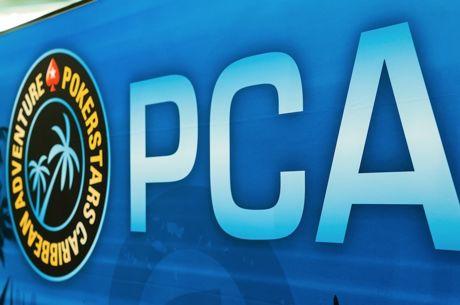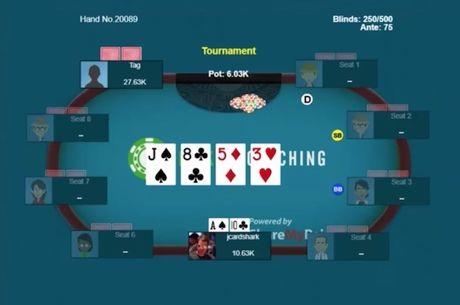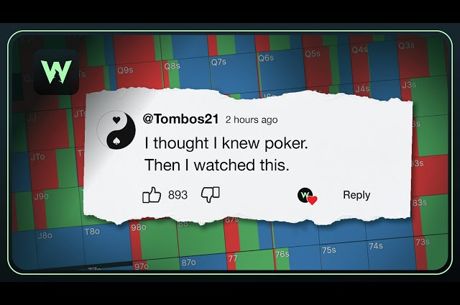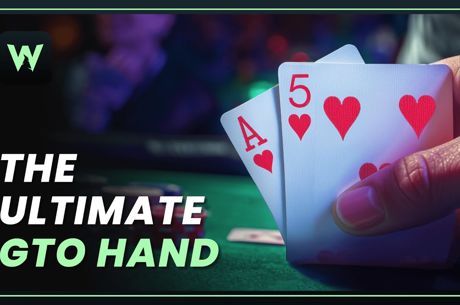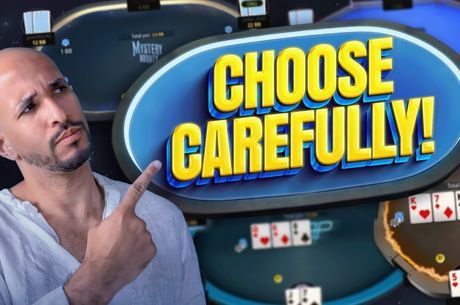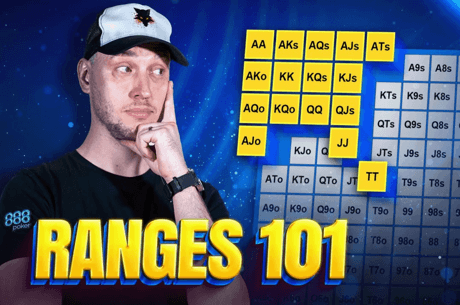Hand Analysis: Don't Ignore the River
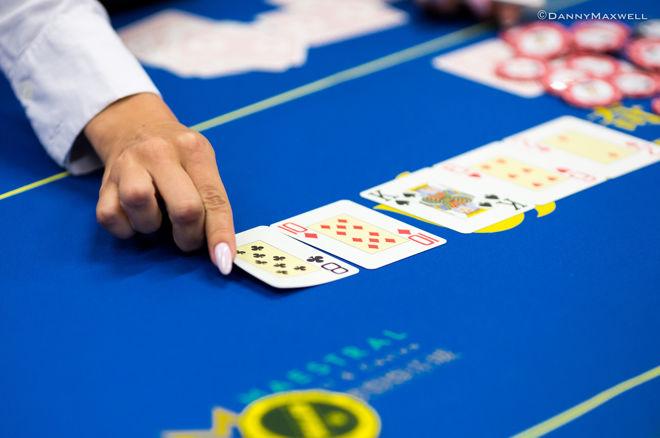
What if the river card had come on the flop? What if your key card had arrived on the river?
Maybe you need to be capable of some sort of Jedi mind trick so that you don't get married to a strong hand the way this player did, in this real hand, that was really played online for real money. The name of the bride was "top set" and the dowry was lost in the following misadventure.
Button Defense
It was a hand of online poker — 6-Max. Zoom at 100NL ($0.50/$1). Action folded around to a competent regular who tried to steal the blinds from the button with a raise to $2.50. The small blind, a perhaps inexperienced player, three-bet to $8.50 and after the big blind folded the button called.
The first thing we can say about the button's range is that he is unlikely to have the absolute strongest hands, such as AK and AA-QQ. We can also say he is unlikely to have the weakest hands, like 54s, Q7o, and the like. He probably has something in the middle.
Middling Ace-High Flops
What reads as a contradiction wasn't exactly that, as not all ace-high flops are alike. This one came A♥10♣9♦ — potentially connecting quite well with both players' ranges and connecting with them in different ways. This is in fact what happened, since the small blind — as you might have guessed from the introduction — held pocket aces.
If not all ace-high flops are made equally, not all flopped top sets are made equally either. Whereas a case could be made to check A-8-3-rainbow out of position, this flop is a bit more coordinated, and coordinated in favor of the button continuing facing a flop bet.
The recreational player in the small blind chose to trap, however, as he might do anytime he feels himself crushing the board this much. The button got a free card and took it. Turn 8♦.
In Search of Lost Time
It is at this point we observe a typical tendency from recreational players. Having set a mousetrap on the flop but seeing the piece of cheese not be nibbled on the turn, the small blind felt like he had to make up for a lost opportunity to bet. And how better to do that then betting the size of the pot?
That is all well and good, because in fact, he is even more likely to be called here than on the flop. The button made the call.
The button's hand likely hand in this situation is JT. After all, the small blind sees three aces out of the deck already, QJ could raise the turn or bet the flop. Ditto for 76 or TT or 99. Jack-ten often calls preflop, nearly always checks this flop, and can handle a pot-sized bet on this turn.
Such information is relevant on account of the 7♠ river, making the final board A♥10♣9♦8♦7♠.
How do you like top set now? What we were saying about not all ace-high boards being created equal?
It is the size, stupid
Why the small blind felt the need for another pot-sized bet on this runout, I speculate about only with trepidation. It could be a case of not knowing what else to do. This is relatively common for inexperienced players in situations such as this. But let me assure you, it was not the answer to bet $49 into $49.
Consider one of the questions with which we began. What if the flop had been 10♣9♦8♦, the turn the 7♠, and the river the A♥? Would small blind feel so entitled to the pot? Would he feel so invested in it, so willing to invest everything to hold onto hopes for it come his way? One would hope not.
After the small blind's river bet, the button raised all in with his last $72. The small blind called it off with his A♠A♥ and got shown the bad news — J♣7♣.
A marginal button defense had turned into a bonanza. And it all didn't need to be.
The small blind could have bet the turn with a jack in his hand, but there is no reason to consider top set the top of his river range on this board. Meanwhile jack-ten is not the only JxXx hand with which the button could have called the turn. KJ comes to mind, as does J9-suited and JJ that called preflop.
The frustration at a bad runout and a trap unsprung can be great. But paying for one's frustrations is not the answer, as small blind learned here. Had he wanted to bet for thin value on the river (inadvisable), he could have gotten away from the all-in with a half-pot bet.
Of course, he could have also not inflated the pot on the turn. When you inflate the pot in this way, you also narrow your opponent's range. And that can lead to narrowing it to better hands, whether you began the hand with pocket aces or otherwise.

